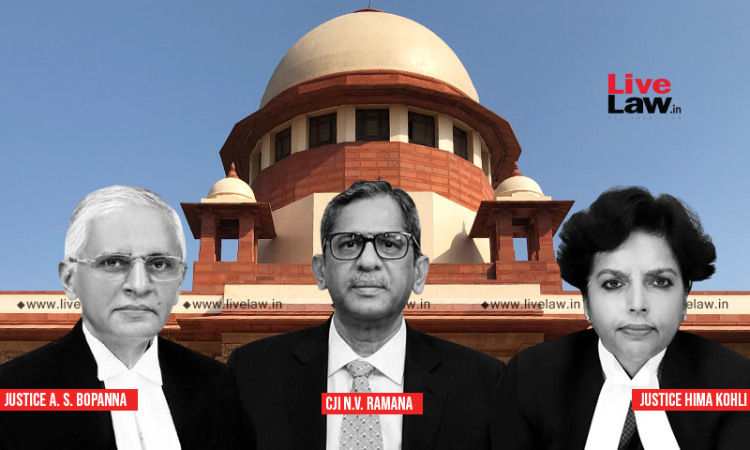Section 304B IPC- Demand Of Money For Construction Of A House Is A 'Dowry Demand': Supreme Court
LIVELAW NEWS NETWORK
11 Jan 2022 6:20 PM IST

Next Story
11 Jan 2022 6:20 PM IST
The Supreme Court observed that demand of money for construction of a house is a 'dowry demand' to attract offence under Section 304B of the Indian Penal Code.The word "Dowry" ought to be ascribed an expansive meaning so as to encompass any demand made on a woman, whether in respect of a property or a valuable security of any nature, the bench of CJI NV Ramana, Justice AS Bopanna and Hima...
